1916
|
During the 1914-18 War many workshops and factories were converted into munitions factories.
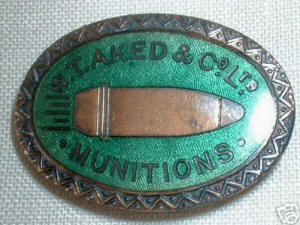
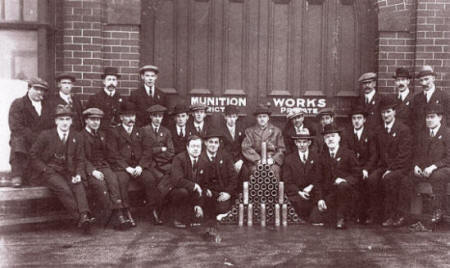
W.T.Aked's Garage in St.Annes during the 1914-18
War when it was making munitions (I think this later became the Fylde Box Company building on
St.Andrew's Road North).
|
MUNITION WORKERS.
GIRL EARNS £5 PER WEEK.
The whole kingdom is mapped out in eleven munition areas, seven in England and
Wales, two in Scotland, and two in Ireland. The areas are subdivided into a varying number of
districts, and each district has a local board of management, acting under the Ministry of
Munitions. The boards of management have drastic powers for taking the lathes, engineering
equipment, and factories in their areas.
At the Ministry of Munitions is an official for each local area. At one factory
in Birmingham 7,000,000 rifle cartridges are turned out every week. Of the 7,000 employees at the
factory, over 4,000 are women, each earning from 30s. to £3, and even more, a week. In the Leeds
area there was not a single munition factory at the beginning of the war. Now there are 500.
The National Shell Factory, at Keighley, turns out thousands of shells a week.
So keen is the competition between the munition factories in Yorkshire to break records in output
that they have a challenge shield for the best shift, the competition being a weekly one.
In Scotland is to be found the largest munition factory in the kingdom. In size
it is second only to Krupps. It is at present directly employing about 60,000 persons, including
6,000 women. Some idea of the varied requirements of modern warfare may be gained from the fact
that at this Scottish factory seventy-seven different varieties of shells are made. The champion of
the factory is a girl who is machining the copper bands on shells. Her record is 1,014 in a
ten-hour shift, or, say, 101 an hour. She earns £5 a week
|
|
Soldiers were issued clothing by the Army but officers purchased their own
uniform.
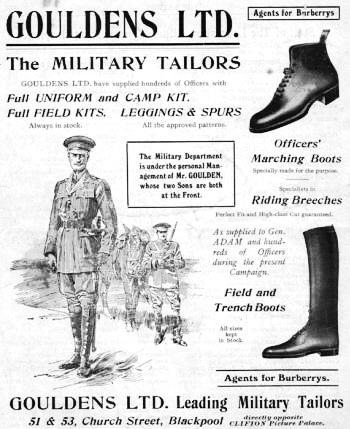
Advert for Gouldens Military Tailors, Church Street,
Blackpool, 1916.
|
Conscription & Exemption.
On 2 March 1916, the [Lord] Derby Scheme was officially replaced by conscription. After
conscription began, civilians might be exempted from military service for reasons such as health
grounds, running a business, caring for their family or because they were working for the War
Office in a munitions factory. These are the proceedings of a tribunal at St.Annes in June,
1916.
ST.ANNES TRIBUNAL.
TWENTY THREE APPEALS.
SOLDIERS FOR FARM WORK.
There were twenty-three appeals, chiefly of men in later groups, at the St.
Annes Tribunal, on Wednesday evening. Coun. R. Leigh (chairman) presided, and the other members
present were Couns. J. H. Taylor, J. Hayes, Messrs. IL W. Heap, R. T. Gillibrand and J. Whiteside,
with Mr. T. Pym Williamson (Military Representative) and Mr. T. Bradley (Clerk).
APPEALS BY SOLICITORS.
With reference to the application of the Blackpool, Fleetwood and Fylde District
Law Society, that the cases of solicitors should first come before a committee of the Society, Mr.
Bradley read the following letter from the Secretary:
"Adverting to your letter of the 22nd May, I beg to inform you that the Military Representative
of the Fleetwood District, Capt. Booth, suggested we should send him the names of three members of
our Society whom he could invite to meet him, When entertaining applications from local members of
the profession."
A further letter from the Secretary to Capt. Booth, nominated Messrs. H. Cartmell (St. Annes), H.
A. D. Plant and W. J. Read.
JOINING THE TRAINING CORPS.
The first case with that of a joiner, who appealed for temporary exemption
because of his wife’s health, and asked to be put back to the end of September. In answer to the
Military Representative applicant said he was willing to join the Training Corps. The Chairman: I
think there has an order come to that effect. Exemption to October 1st was granted, on condition
that applicant joined the Training Corps to make himself fit.
WINDOW CLEANER.
A window cleaner, who appealed on health and business grounds, was told that the
Tribunal could not deal with health grounds. Conditional exemption was granted. The proprietor of a
cafe appealed on business grounds, and expressed his willingness to join the Training Corps if
necessary. He was given conditional exemption.
A green-keeper for a golf club appealed on personal grounds. He stated that he helped his aged
parents.
IN 4 B.
In reply to the Military Representative applicant said he could not do farm
work, as he had double rupture, kidney complaint and flat feet, and was put in 4B. Conditional
exemption was granted, and the Chairman asked him to try to get some work of national
importance.
INSURANCE INSPECTOR.
An insurance inspector who appealed on personal grounds was granted conditional
exemption.
SOLDIERS AND FARM WORK.
A farmer appealed on behalf of his milkman, and stated that he had 200
customers. The man had six children. Conditional exemption was granted. In regard to another
employee at the same farm it was said that an arrangement had been made. Applicant said the
arrangement was that he should go if another man could be found.
The Military Representative said he undertook to find men. He had seen Col. Barron at the
Convalescent Camp, who said that not only would he be pleased to send men, but that he was bound to
do it. The method was to apply direct to Col. Barron or to the Labour Bureau, at Blackpool, in
which case they would be put in touch with Col. Barron. It was just as well that farmers should
know that they could get labour from the camp if they had got farm labourers at the camp.
CASE IN PRIVATE.
A cabinet-maker, who appealed on personal grounds, declined at first to answer
some questions and said it was not fair to ask him. The Chairman: - Then all we can say is "Good
night". Conditional exemption was granted after hearing the case in private.
LUGGAGE-CARTER.
A luggage-carter was the subject of an appeal by his employers. It was stated
that the man had four children. The case was postponed for a month to enable the man to go on to a
farm. The Chairman said they were being pressed to send men on to farms if they could do farm
work.
HIS OWN JOB IN THE ARMY.
A coal merchant applied for his carter, who stated that the man was the only
employee he had to carry on the business. The man was also very deaf. Conditional exemption was
granted.
A motor-car proprietor stated that if he joined the Army his business would be closed. He was
willing to join if his home could be kept going, or if he could get his own job in the Army. To
enable the applicant to get into suitable work in the Army, exemption was granted to August 1st,
without right of further appeal.
CERTIFIED OCCUPATION.
A coal Merchant appealed for his carter, who had been exempted previously to
June 1st. There were only two men left where there were formerly four. The man was in a certified
occupation, and conditional exemption was granted.
A Dairyman appealed for his foreman, and as he was in an exempted trade conditional exemption was
granted.
COAL MERCHANT.
Another coal merchant applied for an employee and was represented by Mr. H. D.
Grey (Messrs. Lonsdale and Grey). It was stated that he was in sole charge of the business.
Conditional exemption was granted.
An insurance agent appealed on personal grounds—the illness of his wife and financial difficulties.
Conditional exemption was granted.
DUSTMAN EXEMPTED.
A dustman asked for exemption on the grounds of his occupation. It was stated
that it was essential that the public health should be maintained, and it was necessary to leave
young men to do it. There was a difficulty in getting men to do that kind of work. Conditional
exemption was granted.
FURNITURE DEALER.
A second-hand furniture dealer appealed on the grounds of being the sole head of
a business, and conditional exemption was granted.
A licensed victualler appealed for the foreman in his mineral water department. Out of seven men
formerly employed in the department six had gone. He applied for temporary exemption to the end of
October. Exemption to July 1st was granted without leave to appeal again.
NINE OUT OF 14 RELEASED.
A St. Annes firm appealed for two of their employees, both plumbers. It was
stated that nine men had been released out of 14, and the men left were not sufficient for the
repairs of the district. Conditional exemption was granted.
OPERATION TO ENLIST.
A waiter appealed on his own behalf for two months' exemption. He had had an
operation to get into the Army and was out of employment for two months. He wanted to meet some
bills. Exemption to September 1st.
A printer's machineman appealed on personal grounds—domestic responsibilities. Conditional
exemption was granted.
SEVENTEEN SERVING.
A painter and decorator appealed for an employee as indispensable, and stated
that he had seventeen employees serving. There was also a personal appeal by the man on account of
his crippled child. Conditional exemption was granted.
APPLICATION REFUSED.
A young yarn agent, single, who had received temporary exemption, applied for an
extension. He stated that he had arrangements for his contracts with a few exceptions and was
expecting a legal action in a few weeks. Applicant did not appear and his application was
refused.
|
Local News, June 1916.
Weeds in the Gardens (St Annes).
To the Editor: Sir,—I was very much surprised to see the state
of the cobble pavement on the bridge at the Water Garden, South Promenade. Dandelion and other
weeds are growing between the stones, which are being lifted out of place, and will soon destroy a
most expensive and interesting piece of work—all for the want of a little attention now and then.
Perhaps this will be the means of drawing the attention of the Council to the matter.-- Yours,
etc., RUSTIC.
Response: Weeds are plentiful in the Promenade Gardens and the
Ashton Gardens, owing to the shortage of labour. An invitation by the Council to give a hand at
weeding, some evening, would no doubt be responded to readily.—Ed.
Distinguished Visitor
A distinguished visitor in St. Annes this week is Lieut. Charles Piette, of the
1st Batt. Engineers of the 3rd Division Belgian Army. Lieut Piette, who is only 25 years old, has
the distinction of holding the Croix de Guerre, and the Croix de Chevalier de le Order of Leopold
II., the latter being the Belgian equivalent to the British Victoria Cross.
The former award was presented to Lieut Piette in March, 1916, and the latter in
May, 1915, and were for bravery displayed in rescuing a wounded officer under fire. Volunteers were
called for and Lieut. Piette and a friend ventured out, the friend being killed, Lieut. Piette
accomplishing the feat and securing a well earned reward in the two medals. He is unable to speak
English He is staying with friends and relatives at 70, St. Andrew's Road South.
ST. ANNES SOLDIER
KILLED IN ACTION.
Another addition to the list of St.Annes young men who have fallen fighting for
King and Country has to be recorded, and we regret to announce the death in action, of Pte. Allan
Redfern, of the 2nd Canadian Mounted Rifles, step-son of Mr. James Harwood, 29, St. Alban’s
Road.
Pte. Redfern, who was 28 years of age, was, prior to emigrating to Canada, four
years ago, employed by Mr. Joseph Whiteside, farmer. Enlisting in the Canadian Mounted Rifles, in
August, 1915, he came to England about two months ago, and after being stationed at Shorncliffe,
left for France. Mrs. Harwood is the recipient of a message of sympathy from the King.
|
|
Soldiers from St.Annes on Sea who received distinctions during
1916.
|
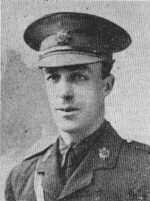
Major Cooper of Park Road, St.Annes won a D.S.O.
in 1916
|
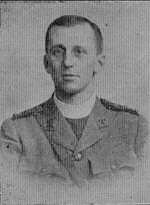
The Rev. H.L.Hornby,
formerly curate at St.Annes Parish Church, was awarded the Military Cross. He was
the son of Archdeacon Hornby, of St.Michael's-on-Wyre and St.Annes was his first
curacy.
|
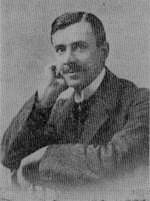
Lieut. Hugh Lawrence,
Dalehurst, St.David's Road North (son of a former Congregational Minister at
St.Annes) won the Military Cross. Before the war he was in the Blackpool
Artillery.
|
|
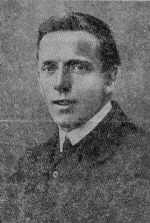
Corpl. Robert Greaves of Greaves Farm,
Headroomgate Road. The first soldier from St.Annes to win the Military Medal. He
was in the King's Liverpool Regiment and one of Kitchener's Army.
|
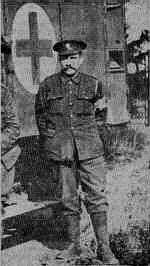
Sergt. J F Lloyd, 84 Highbury
Road, was thee first from St.Annes to be awarded the D.C.M. for conspicuous
gallantry in driving his motor wagon under heavy fire, and for his fine example. He
had served in the Boer War and in civilian life was a chauffeur to Mr R T
Gillibrand of North Promenade.
|
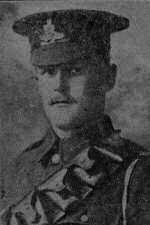
Gunner W S Crowe, of 21,
The Square, St.Annes, won the Military Medal. He was in the 150th Brigade R.F.A.
and received part of his training in St.Annes when they were billeted
there.
|
|
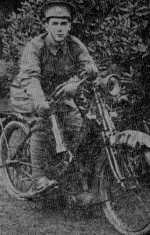
Lieut. E S Crummack, of 23, Park Road, St.Annes
won the Military Medal for laying telegraph wires under fire.
|
|
PRIMROSE LEAGUE & RED CROSS WORK
WORK
DONE IN 1916.
St.Annes-on-Sea Gazette, December 1916
The St. Annes Ladies' Committee of the Primrose League, working for the Red Cross, met three days each week during
the year, at the Parish Rooms, Headroomgate Road, for the distribution, and receiving of work.
Twelve consignments of garments and comforts have been sent up to headquarters, consisting of
345 day-shirts, 34 night-shirts, 15 jerseys, 1,344 pairs of socks, 266 pairs of mittens, 339
pillow eases, 93 mufflers, 119 treasure bags, 191 knitted woollen caps, 12 cholera belts, 41
pairs of hospital slippers, 87 helmets, 4 sheets ,19 bed and writing tables, and 97 other
articles, a total of 3,006, making, with what had previously been sent up, a grand total of
11,134 articles.
The amount received this year in donations, receipts
from whist drives, etc., amounted to £163 6s. 10d., making a total, with what had been
previously received, of £615 9s. 6d. To which must be added an amount of £9 6s., the result of a
Christmas draw for a doll, at Mr. R. J. Hargreaves (ticket 37).
Several parcels of comforts have been sent to local
men serving with H.M. Forces out in Mesopotamia, Egypt, and France, and also one to a local man,
prisoner of war in Germany. The committee take the opportunity of thanking all who have assisted
in any way for the success of the work, and ask for their continued support for more donations,
gifts of materials and comforts. The Committee still meet every Tuesday, Wednesday and Thursday
in each week, from 2-0 to 4-0 p.m., in the Parish Rooms.
|
|
LYTHAM SOLDIER’S
FATE.
Lytham Times December 1916
MISSING, BELIEVED
KILLED.
A letter was received on Christmas morning, by Mrs.
Cropper, of Wellington Street, Lytham, informing her that her husband, Pte. J. Cropper, of the
King's Liverpool Regt., was missing, believed killed. Private Cropper, before enlisting, was
employed as a joiner, by Messrs. Sutcliffe and Sons, of St.Annes.
The Chaplain of the regiment, in the letter,
says:
"I am afraid I have to send you very bad news that
your husband is wounded and missing in the German lines, and I am afraid it is practically
certain that he is dead. He was one of the daring party that raided the German trenches; he did
splendidly, but was badly hit getting out of their trenches to come back after the raid. An
officer, himself badly wounded, saw him, and is practically certain he was dead. It was quite
impossible to get him back, so he had to be left where he was, in German hands.
Of course, it is just possible he may be wounded
and a prisoner, but I am afraid you must try and accept the fact that he is dead. Without doubt,
his body will have been decently and reverently buried behind the German lines, and they will
put up a little cross to mark his grave. I am very sorry for you, and I want you to understand
how deeply I sympathise with you in your great sorrow.
Will you try to remember two things; the first,
that he died the finest death a man can die, fighting for his country and the Right; and
secondly, that it is only his poor body that lies here in France, while his soul, the real self
that you know and love, has gone back to his God, who loves him, too."
|
|
Preston Herald - Saturday 30 December 1916
PRESTON STATION BUFFET.
During Sunday and Christmas Day 2,266 soldiers were served at the buffet as they
passed through the station. These figures are slight compared with the 12,449 who were provided
with refreshments during the 32 hours immediately previous. This is a record number in the history
of the buffet.
|
|